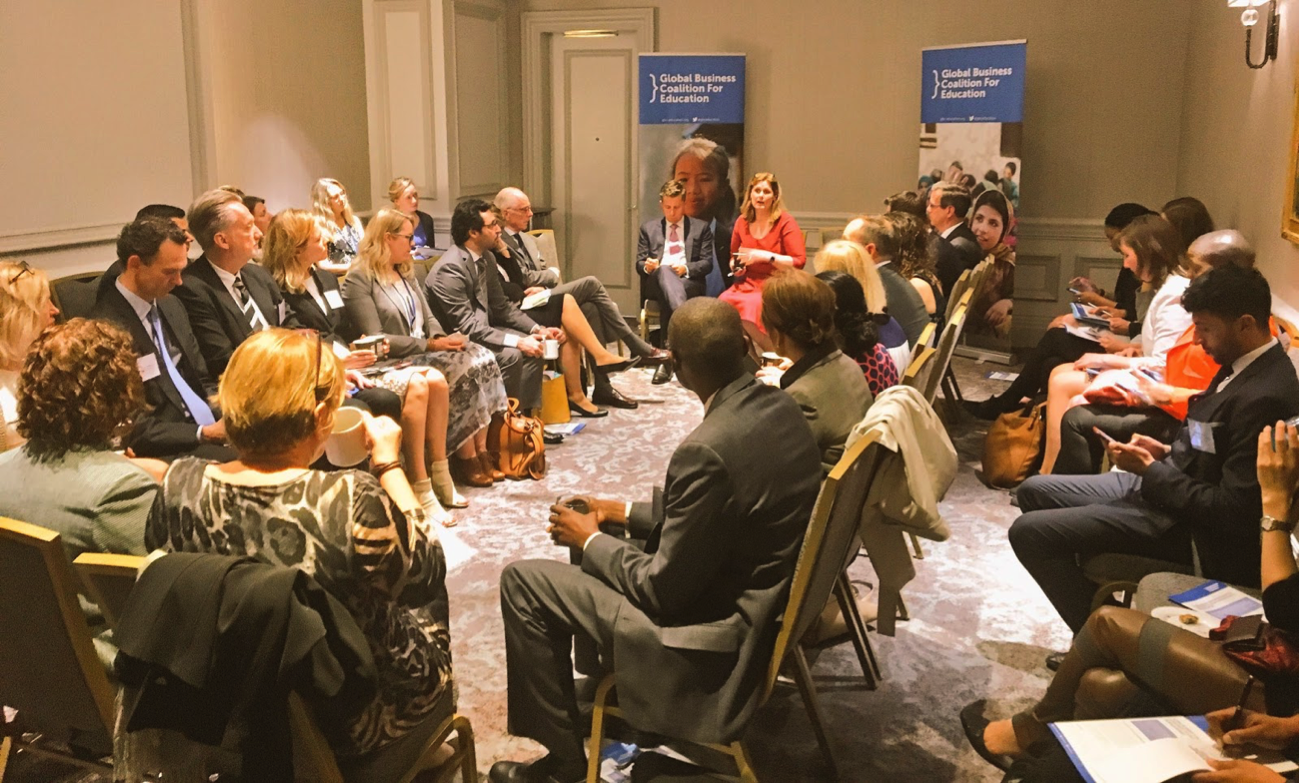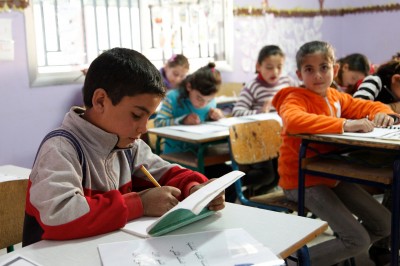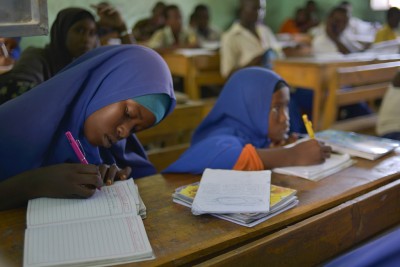Education in Emergencies: How The Private Sector Can Play a Role in Protecting it in Times of Crisis

Education can be life-saving during times of conflict and crisis. It gives children a place to feel safe, provides a sense of stability, and protects them from vulnerabilities to trafficking, child labor, early forced marriage, or recruitment into armed groups. Schools can also serve as dissemination points for crucial information about services and safety during crisis.
Unfortunately, education is traditionally seen as a luxury rather than a necessity, particularly during emergencies. For example, of all the humanitarian aid distributed in 2016, less than 2% went towards education.
As part of our recent April events, the Global Business Coalition for Education (GBC-Education) convened high-level leaders from governments, donor agencies, foundations, and GBC-Education member companies. The goal of the event was to discuss how private sector contributions and partnerships can break through the challenges of providing education to children trapped in emergencies.
During the meeting, GBC-Education gave a progress update on our Rapid Education Action (REACT) initiative. This initiative advances our commitment to facilitate the mobilization of available private sector resources (monetary contributions and in-kind services such as talent, products, and services) and connect that support to organizations on the ground who need those resources to provide children with access to education.
Sarah Brown, Executive Director of GBC-Education, opened the discussion by highlighting the the launch of the Education Cannot Wait (ECW) fund. Since its launch nearly one year ago at the World Humanitarian Summit, GBC-Education has supported the efforts of the ECW fund. “The launch of the Education Cannot Wait fund has created an opportunity for engagement of the private sector” she said. “We have an opportunity to look at innovative partnerships and innovative financing.”
GBC-Education Advisor and former British Ambassador to Lebanon, Tom Fletcher, shared details on what this support could look like — an approach that is more collaborative and allows room for outside-of-the-box approaches that involve more than simply financial contribution. He said, “Can we find a way to make it more interactive and make business feel that they are part of the solution and not just give them a laundry list of things they can pay for?”

Syrian children attend school in Lebanon. Photo by Russell Watkins/DFID
One way to do that, Fletcher explained, is REACT. Our recently released progress report showcases initial pilot partnerships already underway in Lebanon, Iraq, and Somalia. To date, GBC-Education has gathered details on available resources and commitments of potential support from 50 global companies from multiple industries. Fletcher emphasized that now “we hope that through ECW we can get these very practical needs that we can respond to.”

Somali girls take notes during class. Photo by David Mutua/AU/UN
The broader group discussion centered around what can be achieved when the private sector, governments, and civil society work together to restore and rebuild education in emergency contexts. Newly appointed Director Designate of ECW, Yasmine Sherif emphasized the need to establish a relationship between businesses who want to invest in humanitarian emergencies and the children caught in these crises.
Closing out the meeting, Tom called for continued engagement from all sectors represented in the room, urging them to continue to work with GBC-Education in creating innovative, cross-sector partnerships centered on sharing best practices and finding ways to leverage untapped resources.
For more information on how your company can get involved with REACT, please contact Sherif Kamal at sherif@gbc-education.org.
